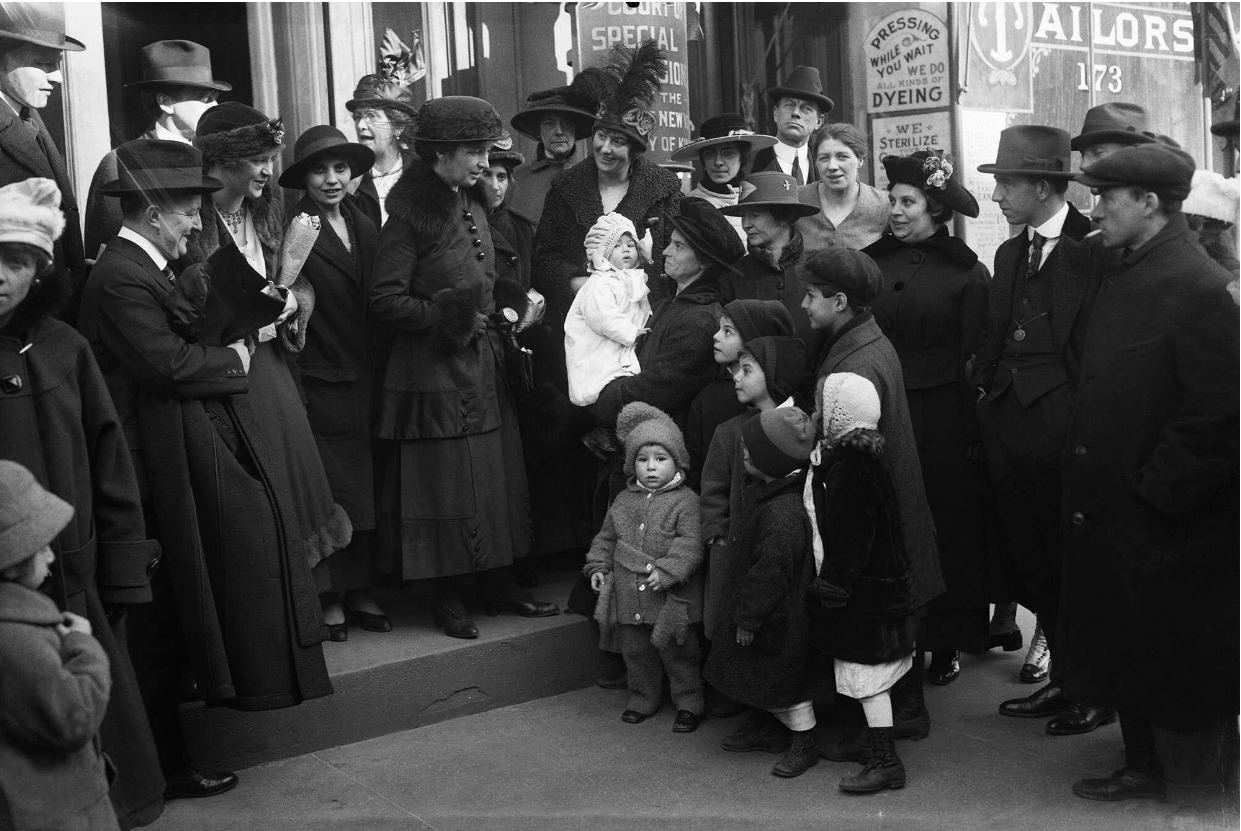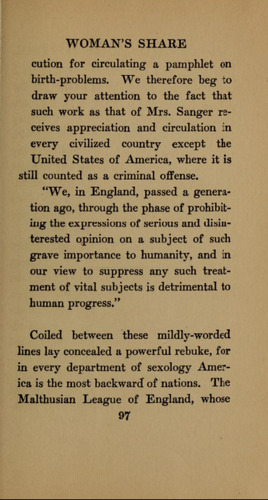Public Debate
The Birth Control Trial
Due to the nature of the crime, the sister's attorney, Jonah Goldstein, aimed simply to avoid jail time rather than attempt to deny the charges. Ethel Byrne's trial began first, on January 4th, 1917, where she was found guilty and sentenced to thirty days in a workhouse (although she was released early due to Sanger's negations with the New York governor). Her response was a hunger strike, which resulted in media attention that the courts had hoped to avoid, and she ended up being force-fed through a tube.
Sanger's trial began on January 29th of the same year, during which she called upon witness testimonies of women who had benefitted from the clinic's services. When the court offered a reduced sentence if Sanger promised to abide by the law, she responded that she would not be able to do so as the law stood, and was found guilty. She was sentenced to thirty days in prison, opting for that over a five-thousand-dollar fine.
The necessary secrecy of the clinic means that there are few surviving physical records of it, which makes verifying specific details about this historical event difficult. Despite the closure of the clinic, the trial succeeded in prompting a more public conversation about birth control and served as the foundation for Sanger's work in propelling the movement for women's reproductive rights.
Opposing Views
At the time, the United States was one of the only Western nations with laws prohibiting and limiting birth control and related materials. The general view held by other nations, like England was that it was immoral to force a woman to carry an unwanted pregnancy, and they viewed the United States as lacking progress in this regard, referring to it as "enslaved by Comstockery" (Pioneers of birth control in England and America).
The image to the right is an excerpt from a book published by American and English proponents of birth control. The specific page shown demonstrates how English reformers saw the disallowance of Sanger's work as unbecoming of a civilized society like the United States. Europe had made far more progress in their acceptance and provision of birth control, and Sanger had actually fled there to study birth control for a year after her first violation of the Comstock Act.
Comstock had influenced a view within the United States government that contraceptives were impure and offensive and would lead to corruption, which was not a perspective commonly held overseas.

